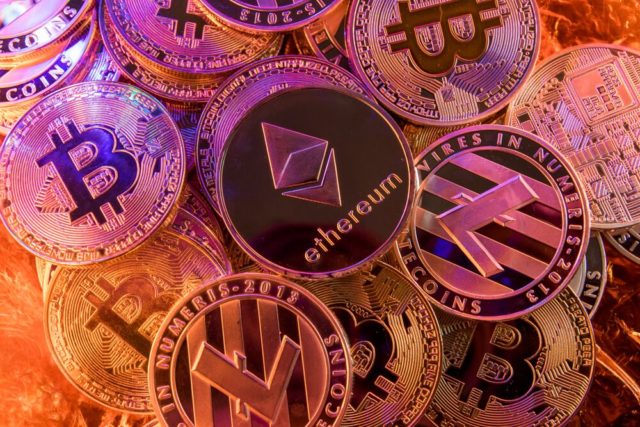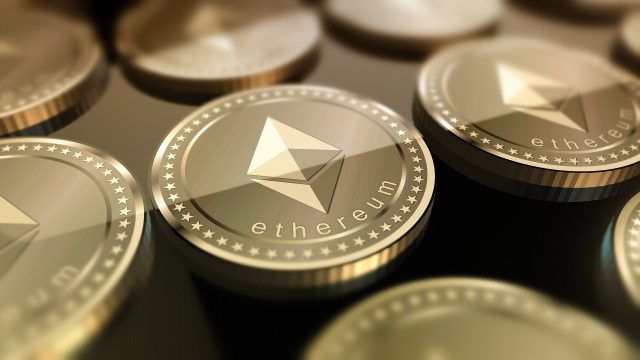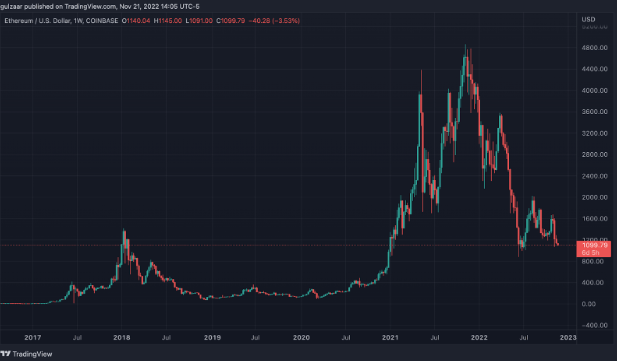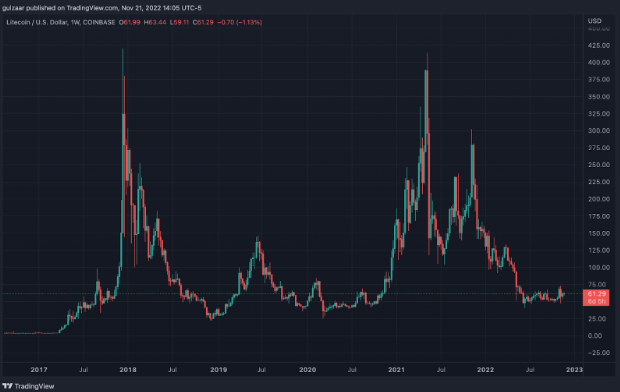These days, there are many different cryptocurrencies to choose from. If you’re thinking of investing in digital currency, you may be wondering how Litecoin and Ethereum – two very popular altcoins – stack up against each other. Here’s a brief overview of the two cryptocurrencies, as well as a comparison of their pros and cons.
Litecoin vs Ethereum: Key takeaways
- Litecoin is a peer-to-peer digital currency. The native cryptocurrency of the platform is called LTC and has a total supply of 84 million coins.
- Ethereum is an open-source, public blockchain platform that allows developers to build and deploy decentralized applications (Dapps). The native cryptocurrency of the platform is called Ether (ETH) and has a total supply of over 110 million coins, though it is deflationary in nature after the new EIP update.
- Litecoin is designed to be a faster, more lightweight alternative to Bitcoin, with lower transaction fees and larger block size.
- Ethereum focuses on enabling smart contracts and decentralized applications (Dapps) to be built and run without any downtime, censorship, fraud or third-party interference. It utilizes a Proof of Stake consensus mechanism and the GHOST protocol for faster transaction speeds.
Litecoin history
Litecoin was created in October 2011 by Charlie Lee, a former Google engineer. It is a fork of the Bitcoin Core client, with the main difference being that Litecoin has a faster block generation time. This allows for more transactions to be processed per second. Litecoin has grown in popularity since its launch, becoming one of the most popular cryptocurrencies today.
Ethereum history
Ethereum was launched in July 2015 by Vitalik Buterin, a cryptocurrency researcher and programmer. It is an open-source platform designed to enable smart contracts and decentralized applications (Dapps) to be built and run without any downtime, censorship, fraud or third-party interference. It utilizes a Proof of Stake consensus mechanism and the GHOST protocol for faster transaction speeds.
Litecoin Explained
Litecoin has been around since 2011 and is often referred to as the “silver” to Bitcoin’s “gold.”
Faster Transaction Times
One of the biggest advantages of Litecoin is that it has faster transaction times than Bitcoin. While Bitcoin transactions can take up to 10 minutes to confirm, Litecoin transactions can be confirmed in just 2.5 minutes. This is due to the fact that Litecoin uses a different mining algorithm than Bitcoin. This difference may not seem like much, but when you’re dealing with large numbers of transactions, those minutes can add up quickly!
Cheaper Transaction Fees
In addition to being faster, Litecoin transactions also tend to be cheaper than Bitcoin transactions. The average transaction fee for Litecoin is currently $0.033, while the average fee for Bitcoin is $1.51! That means you can save a significant amount of money by using Litecoin instead of Bitcoin.
More Scalable
Another advantage of Litecoin is that it is more scalable than Bitcoin. The block size for Litecoin is 4 times larger than the block size for Bitcoin, which means that it can handle more transactions per second. This makes Litecoin a great choice for businesses that need to process large numbers of payments quickly and efficiently.
Well-Established Team and Community
Litecoin was founded by Charlie Lee, a former Google engineer who has been involved in the project since its inception. The team behind Litecoin is well-established and has a proven track record of delivering on their promises. In addition, the Litecoin community is large and vibrant, with an active presence on social media and forums. This makes it easy to get help and support if you need it.
Listed on Most Major Exchanges
As cryptocurrency becomes more mainstream, more and more exchanges are listing Litecoin (along with other altcoins) for trading. This means that it’s easier than ever to buy and sell Litecoin, which makes it a good choice for investors who want exposure to multiple cryptocurrencies without having to use multiple exchanges.
Trezor and Ledger Support
If you’re serious about cryptocurrencies, then you’ll want to invest in a hardware wallet like Trezor or Ledger Nano S/X . These devices allow you to store your coins offline in so-called “cold storage,” which makes them much less susceptible to hacking or theft. Both Trezor and Ledger support Litecoin, so you can rest assured that your coins are safe if you use one of these devices.
Disadvantages
While Litecoin has several advantages over Bitcoin, there are also a few potential drawbacks to consider.
One of the biggest potential problems is that Litecoin is not as widely accepted as Bitcoin. This means that it can be difficult to find places to spend your Litecoins, and you may not be able to take full advantage of their value.
Additionally, the Litecoin developer community is smaller than the Bitcoin community, which could lead to slower progress on updates and new features. However, overall Litecoin is still a solid investment and has a lot of potential. just keep these potential downsides in mind before you make your decision.
Ethereum Explained
Ethereum is a decentralized platform that runs smart contracts: applications that run exactly as programmed without any possibility of fraud or third party interference. Ethereum is used to build Decentralized Autonomous Organizations (DAOs), decentralized applications (DApps), and other blockchain-based projects.
How Does Ethereum Work?
Ethereum uses a blockchain, like Bitcoin. However, while Bitcoin’s blockchain focuses on tracking ownership of the currency itself, Ethereum’s blockchain can be used to track anything of value—ownership of property, for example, or identity data.
Ethereum’s blockchain also runs on a different principle than Bitcoin’s blockchain. Rather than being powered by miners who process transactions in exchange for rewards, Ethereum’s blockchain is powered by so-called “nodes.” These nodes are run by volunteers from around the world who are motivated by the rewards they receive in the form of ETH, Ethereum’s native currency.
Building dApps on Ethereum
Ethereum also offers its own programming language, called Solidity. Using this language, developers can create smart contracts that run exactly as programmed without any possibility of fraud or third-party interference. This makes Ethereum a great platform for building projects that require trust and security.
Which is a better buy, Ethereum or Litecoin?
Ethereum arguably has a brighter future than Litecoin, considering that it is a blockchain that is meant for building other apps on it. This makes the possibilities for its continued use nearly endless, especially since there are already hundreds of apps currently deployed on it.
For this reason, it seems like Litecoin will have a smaller, dedicated community looking to continue using it, and Ethereum will probably continue to experience growth.
Interestingly, technical analysis of both currencies suggests that Ethereum is doing much better in this downturn(especially after the collapse of FTX) than Litecoin.
The weekly chart for LTC shows that LTC hit its peak of $420 in December 2017, then peaked again in the last bull market at resistance of $413, before hitting a bottom(so far) of $40 in June 2022.
The weekly chart for ETH shows that ETH peaked in 2018 at $1400, then at $4900 in the last bull market, and bottomed out(so far) at $873 in June 2022.
ETH bottomed out at ⅕ of its peak, whereas LTC bottomed out at almost ⅛.
This may present a bargain buying opportunity for LTC, but considering that LTC was not able to break through its previous bull market high, it seems that LTC may have lost steam.
Conclusion
When it comes to investing in digital currency, there are many options to choose from. While both Litecoin and Ethereum have a lot to offer investors, they each have their own unique pros and cons. Before making any decisions, be sure to do your own research to figure out which option is right for you.












